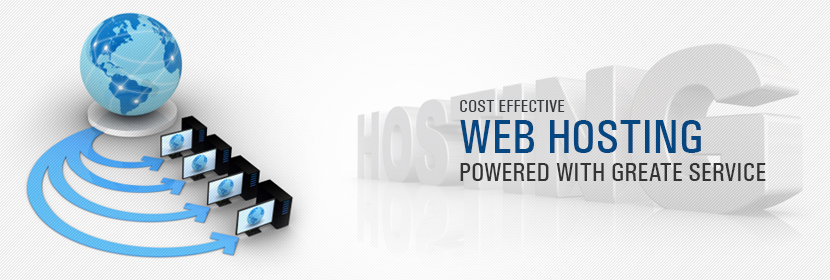After a lot of deliberations and preparations, the federal agencies are eventually modernizing their infrastructure and taking steps towards the cloud environment. The technology team from the federal agency had first mooted the idea of a cloud model for their IT about 9 years ago. Their arguments were valid then and even now still stand good. The benefits and savings in the cloud are too large to be overlooked.
The focus to drive digital transformation to garner efficiency and improve service delivery led to the targeting of the federal data centers. The federal government had considered moving to the virtualization technology to reduce their data center footprint. It had become necessary to streamline the IT procurement by applying the best practices using the private sector.
Slow yet moving
The moment had been slow. In fact, till about a couple of years back, the federal agencies were continuing with the legacy systems and the effort towards moving to the cloud was minimal. The Office of Management and Budget had instructed in 2016 for the federal agencies to ensure 15 percent of the IT budget must be utilized for the cloud computing services but none of the federal agencies failed in meeting it.
Decision makers did not plan out strategies and were lost not knowing the best ways to start the cloud journey. They lacked the understanding to create a timeframe and budget. How to adopt the pay per use utility-based billing to the complex nature of procurement rules of the federal agencies. What the likely blockades could be? Some have the fear of moving from the legacy infrastructure to a new unknown external environment.
The cloud-first approach
The ideal way for those who still are indecisive is to begin in a slow phased manner. Start with the younger lot those who are innovative and excited to explore the new technologies. The next step must be to educate the reluctant with a feedback about how the change is improving productivity and apply the same practices. This will slowly but surely build a cloud-first environment ushering in agility, innovation, and efficiency.
On way to innovation:
The thinking has changed over the period. Although it is not at the same pace as the private sector, the government organizations too have begun leaning towards the cloud. It is the people who are benefiting with faster services and solutions. They get the same experience that the consumer gets from the commercial enterprises.
For instance, the Department of Homeland Security (DHS) is modernizing its Trusted Internet Connection (TIC) policies to ensure there are no bottlenecks in cloud adoption. The TIC policy at the time of its initiation in 2007, had limited the number of government connections to the internet to 50 via secure gateways monitored by DHS to prevent intrusions. The DHS is working with cloud service hosting providers to build a new sensor strategy to prevent cyber threats by placing security checkpoints at the edge of federal networks. It will need time for implementation.
Defense sector:
The Ministry of Defense earlier in the year had finalized a $950 million deal with an AWS partner service, for the IaaS services as Pentagon looks to bring in more agility and speed to their purchases. The Department of Defense Information Network (DODIN) is using the Rubrik (cloud data management company) to modernize its IT infrastructure.
Health:
Cloud infrastructure is a big necessity to the health industry. The new health technology of precision medicine requires high levels of scalability and reliability to store and access information of a person which a cloud provider can deliver through innovation and on-demand services.
The financial benefits of moving to the cloud cannot be ignored. The move to migrate to the cloud is part of its plans to utilize its resources to build and strengthen the forces keeping a control over the spend.
Shared services
Government agencies understand and prefer sharing IT services to benefit from the cost savings and improvement in operational efficiency. They seek the cloud solutions to enjoy features like 24/7 monitoring, security, fraud detection and prevention, asset management and similar. All the cloud models (IaaS, PaaS, SaaS) bring in greater flexibility with scalable capacity to ensure agility and responsiveness to the evolving business situations.
Security
Security was a point of concern not only for businesses but also one primary reason why many of the federal agencies had to defer the frequent requests from their respective technology officers. However, with the vast improvement in technology, security of data is one of the biggest assets of the cloud that is driving people to the cloud. Another advantage is there is lesser hardware in-house to manage and maintain reducing the workload. The leading cloud providers are FedRAMP (Federal Risk and Authorization Management Program) compliant and can be trusted to process, store, and transfer the federal agency data to the cloud environment.
Access to innovation and new technologies
In addition, moving to the cloud will enable the agencies to achieve an experience of the amazing new emerging technologies like artificial intelligence(AI), Blockchain, augmented reality, drones, big data analytics, Internet of Things (IoT), machine learning, robotics, virtual reality etc. Technology is developing fast and it is the right time for the federal agencies to consider and maximize the offerings.
Utility services
Most of the federal and state agencies offer a range of citizen services. There are many ways the cloud technology can be useful. Giving the citizens assess to monitor their consumption can aid in making them more responsible for usage. The citizens also benefit by tracking the services they requested for like loan applications, medical reports etc.
Cloud adoption by the government agencies is all set to accelerate. They are bound to streamline their legacy systems to meet with their goals and missions. All the innovations and technologies can only be maximized in the cloud environment. Agencies require the scalable and elastic cloud services to be successful in their effort to reinvent their strategies and plans for the digital era.














